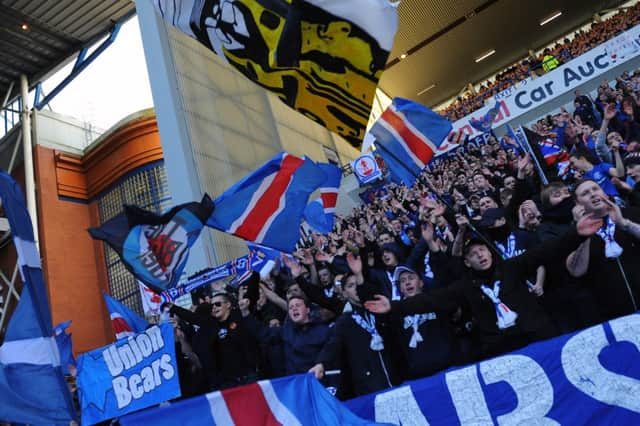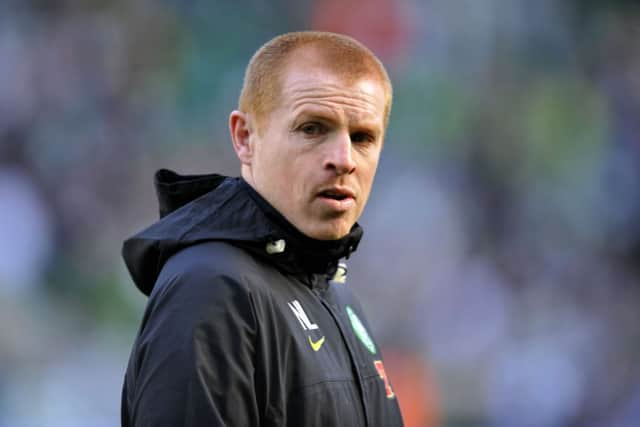Glenn Gibbons: big hitters see Rangers as small fry


Principal among these is the ludicrous notion that the Ibrox club (and their traditional rivals, Celtic, for that matter) warrant being referred to as “a massive institution” whenever their descent into the fiscal void is discussed, as if another General Motors has gone to the wall. This is clearly a preposterous description to apply to an organisation whose latest financial returns show an annual turnover of £19 million. That equates to about three months’ takings for the average-sized Asda supermarket.
Hard evidence of the regard in which the market held the new Rangers company which was formed after the liquidation of the old – that is, their status as a business as opposed to a crowd-pulling football team – first emerged with the results of the share issue launched under the former chief executive, Charles Green, in December, 2012. At the time, Green talked of the “huge” interest from “institutional investors”, a claim which was less than convincing, given the recessionary times in which the prospectus was
offered.


Advertisement
Hide AdAdvertisement
Hide AdNor did it seem to make sense for institutional investors – these are hedge funds and the like handling pensions and other monies on behalf of clients – to be risking substantial amounts of cash on a football club, and especially one in Scotland that would be operating in the relative penury of the bottom tier of the game. In the event, these so-called heavy hitters limited their commitment to a total of just £17m, with another £4m worth of shares bought by individual fans. Now the eight most prominent institutional investors (not counting Sandy Easdale, an individual businessman) own equity worth an average of £1.3m. This is a figure that would not cover the annual remuneration of the common-or-garden hedge fund manager. Indeed, as an accountant friend confirmed, it suggests the kind of throwaway “investment” that results from the company involved having been advised it would be tax-efficient, rather than a source of profit.
Nor could these reputed heavyweights be accused of an attempt at seizing power at Ibrox, since the biggest among them, Laxey Partners, holds a mere 12.47 per cent of Rangers. Curiously, the company about which there has been so much intrigue over the past year or so – with puzzling, widespread demands for the identities of their personnel to be revealed – appeared only this week to show a pronounced insouciance in the matter of the Ibrox club’s business affairs.
Having agreed to lend the club £1m in return for an interest payment of £150,000 as well as security over the Albion car park and Edmiston House in the event of failure to repay the loan, Laxey seemed surprisingly ready to cancel the deal in order to allow an apparently wealthy fan, George Letham, to step in with the funds at a more favourable rate. This hardly seems to be the action of a City predator, interested only in maximising returns for minimum stakes.
If anything, it is an episode that hints strongly at the possibility that, whatever priorities and imperatives drive their interest in Rangers (unlike certain individuals such as Green) making a quick killing is not among them.
Celtic’s ‘lost’ treble is hardly unprecedented
The impish cast to Fergus McCann’s mind would surely have been highly activated by the events of this week.
While Celtic fans were remembering and celebrating McCann’s rescue of the club from the financial quicksand and looming oblivion during the most critical days in its history in 1994, there was a simultaneous outbreak of disgruntlement that the team under Neil Lennon at present were only 21 points ahead of the pack on their way to a third successive league championship. For those apparently endowed with the memory of a goldfish, this is clearly just not good enough.
The notion that Celtic should stroll virtually unopposed to a domestic treble every season on the nonsensical grounds that their traditionally strongest rivals, Rangers, play in a lower league, is a supposition not supported by historical statistics. Some observers refer to Lennon “losing” a treble, seemingly unaware that you can’t “lose” one, but simply fail to win one.
During the periods of virtually unchallenged domination by each member of the Old Firm, those many occasions on which they fell short of a domestic grand slam were almost inevitably the result of defeats by lesser opponents.
Advertisement
Hide AdAdvertisement
Hide AdGraeme Souness managed five years at Ibrox without winning the Scottish Cup, unforgettably losing to Hamilton at home in 1987. Martin O’Neill contrived to have the most formidable side in the country in 2003 and win nothing as Rangers under Alex McLeish lifted everything. O’Neill took his team to Seville and the Uefa Cup final. He also took them to Inverness and lost in the Scottish Cup, before conceding the championship on goal difference.
In one bizarrely contradictory article, Lennon was first of all chastised for his part in two “avoidable” defeats, by Morton in the League Cup and by Aberdeen in the Scottish Cup, thereby failing once again to land the treble. A few paragraphs later, however, Lennon was accused of being “ungracious” following his scathing remarks about referee Craig Thomson’s performance in Celtic’s defeat in their latest league match at Pittodrie. It is a perfectly legitimate view, but Lennon was “advised” by the observer that he should simply have accepted that “these things happen” and allowed Aberdeen the credit they deserved.
These things certainly do happen – but, apparently, in some quarters they are only forgivable if they do no damage.